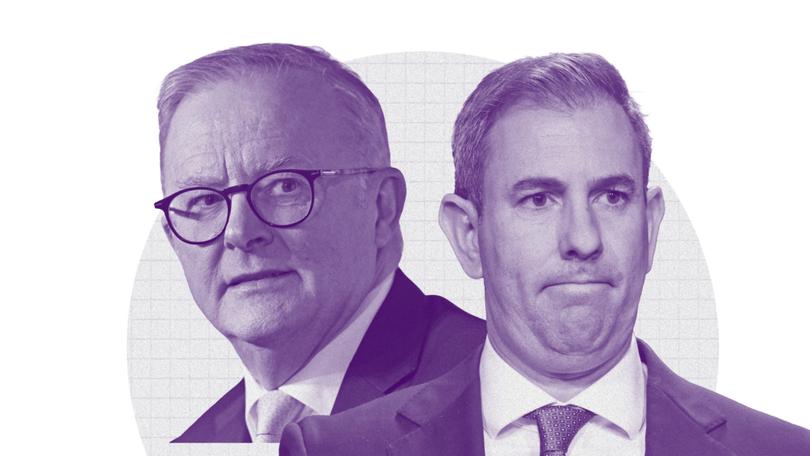Jim Chalmers defends ‘smart and strict’ investments made in Australia
Government investments in Australian industry will be ‘smart and strict’, not try to cover every sector or last forever, Treasurer Jim Chalmers will declare as he tackles criticisms of the Budget centrepiece.

Government investments in Australian industry will be “smart and strict”, not try to cover every sector or last forever, Treasurer Jim Chalmers will declare as he tackles criticisms of the Budget centrepiece.
But Future Made in Australia is not all about public money either; private financing will be further encouraged with an overhaul of foreign investment rules.
New legislation will set up five tests for how and where the Government acts, but Dr Chalmers says anyone who thinks Australia should not be in the game is kidding themselves about global realities.
Sign up to The Nightly's newsletters.
Get the first look at the digital newspaper, curated daily stories and breaking headlines delivered to your inbox.
By continuing you agree to our Terms and Privacy Policy.“There’s been a stupendous increase in industrial subsidies, particularly among the major economic powers,” he will tell the Lowy Institute in a speech on Wednesday.
“The scale of subsidies in the three major global economies of course dwarfs anything Australia can offer, which is why we will be smart and strict.
“But it would be preposterously self-defeating to leave our policies unchanged in the face of all this industry policy taking shape and taking hold around us.”
The Future Made in Australia plan has come under fire from Productivity Commission head Danielle Wood, her predecessors and other economists, who argue it is not the place of governments to be picking winners or that the country cannot compete with the likes of China and the US.
Deloitte Access Economics partner Stephen Smith said the Government needed a better explanation beyond “others are doing it” because the policy would not stack up against orthodox economic models.
“Why would the Federal Government seek to implement a policy that will impose higher prices on Australian consumers and greater costs on the Australian economy? The only conclusion is that Future Made in Australia is not an economic policy,” he said in Deloitte’s budget monitor.
Dr Chalmers will use his speech to shoot down such arguments, saying no one is claiming Australia has the scale to compete in every industry or that it must outspend anyone else.
“Nobody is saying that these interventions will be permanent, or that we should retreat from trade, or make every one of the goods that we need here,” he says.
“Our medium-sized, open economy and small population means we don’t have the internal markets to insulate ourselves from the world in ways that others can, even if we wanted to.”
The five tests underpinning Government decisions will be whether the industry is one where Australia can be competitive, contributes to “an orderly path to net zero”, builds the capabilities of our people and regions, improves Australia’s national security and economic resilience, and delivers genuine value for taxpayer money.
Dr Chalmers will also reveal a long-awaited overhaul to the foreign investment approval scheme.
Scrutiny will move to a risk-based model, with greater examination of proposals involving critical infrastructure, critical minerals, critical technology and sensitive data sets, or which are located close to Defence sites.
Applications that are considered low-risk, particularly if they come from known investors with good compliance records, will have a new streamlined process involving less paperwork.

